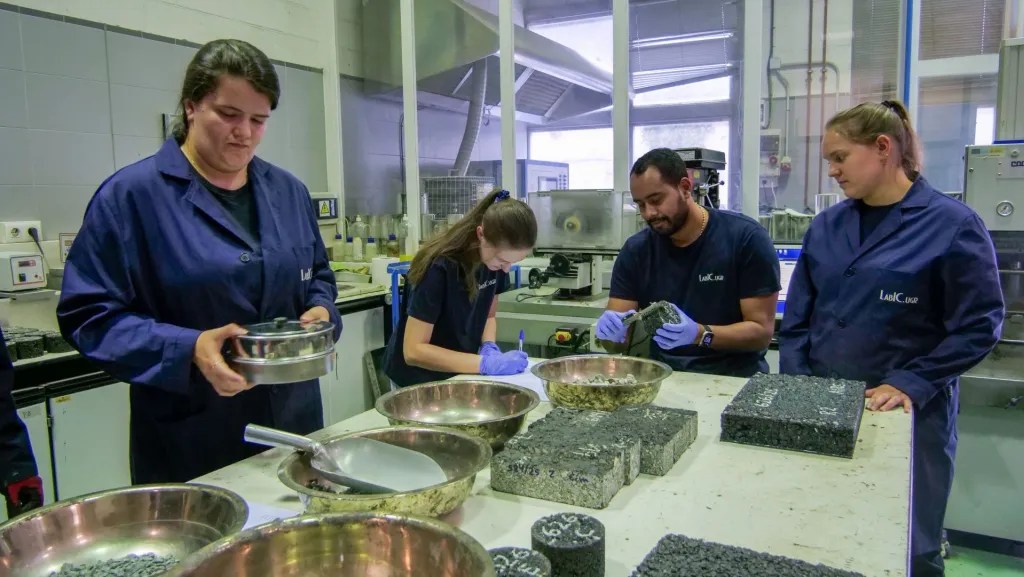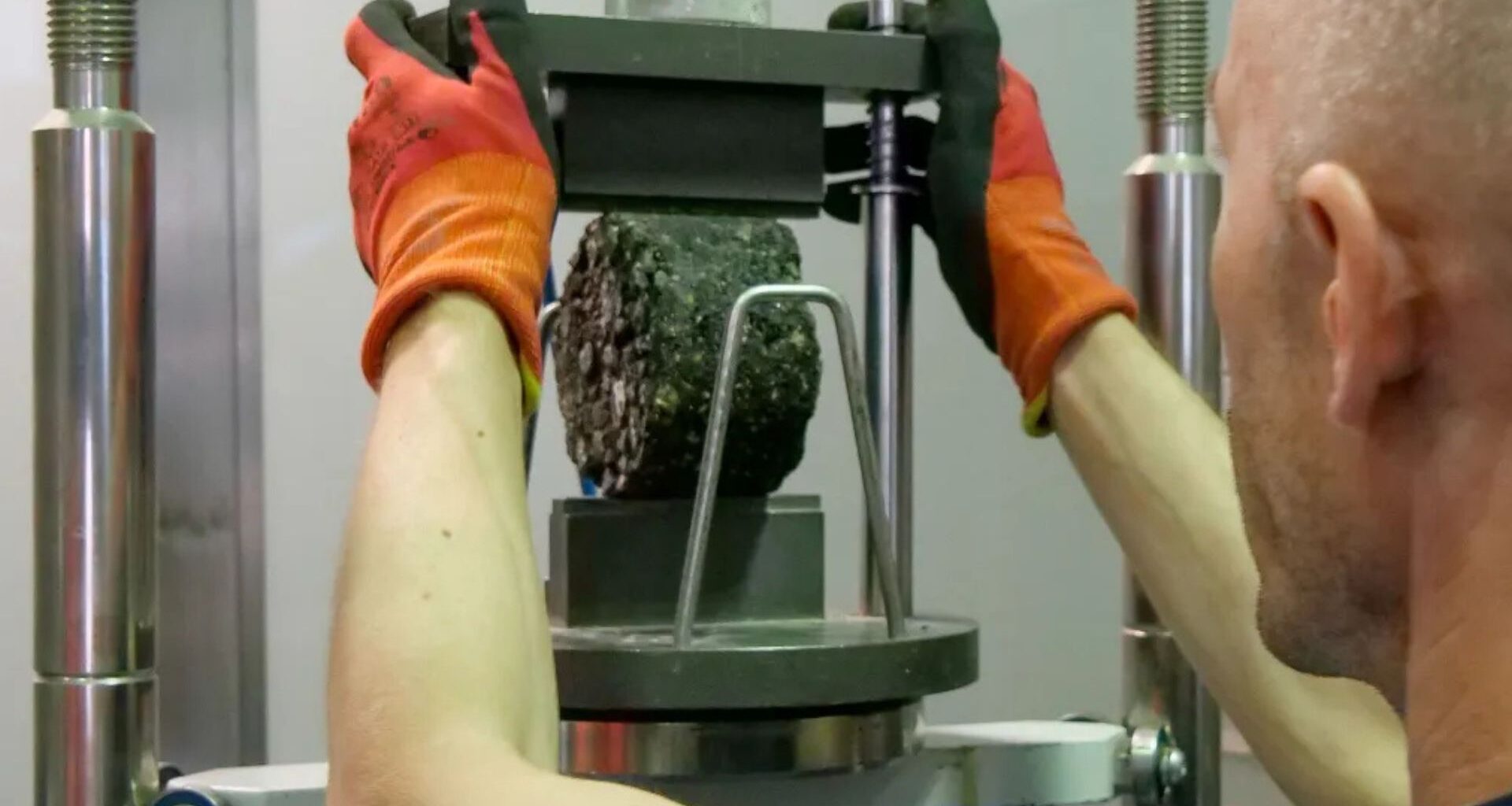Cigarette butts are now being turned into a valuable additive for road construction.
Backed by the Chinese government, a joint research project between the University of Granada (Spain) and the University of Bologna (Italy) successfully developed a method to extract beneficial material from discarded cigarette butt waste pellets.
The study demonstrated that cigarette filters can significantly strengthen recycled asphalt before it’s reapplied to roads.
 Researchers are working on the recycled asphalt. LabIC.UGR
Researchers are working on the recycled asphalt. LabIC.UGR
Curbing cigarette waste
Cigarette butts have long been a predominant form of waste, and their environmental impact is staggering.
Filter cigarettes alone contribute to an overwhelming amount of waste, with the World Health Organization (WHO) estimating roughly 4.5 trillion filters are discarded annually.
And with the rise of e-cigarettes, especially among young people, that number is only climbing. Unfortunately, this number is projected to climb to a staggering 9 trillion by the end of 2025.
The massive waste chokes waterways, taints landscapes, and lingers for years.
This is where innovation steps in.
For instance, Lithuanian scientists in 2023 developed a method to repurpose cigarette waste into biodiesel. This was possible because triacetin, a vital compound for biodiesel production, is abundant in cigarette filters.
Now, researchers are recycling cigarette butts – particularly those from e-cigarettes due to their high fiber content – to use as an additive in road construction.
In this work, the journey begins at the University of Bologna’s Department of Civil, Chemical, Environmental, and Materials Engineering. The team has developed a process to create specialized pellets from cigarette butts.
The process involves first removing the organic ash, then crushing the remaining cellulose fibers and PLA plastic.
This material is then mixed with a special wax (Fischer-Tropsch-type), acting as a binder, and undergoes a process of pressing, heating, and cold cutting to form these innovative pellets.
Crack-resistant asphalt
The next step takes place at the University of Granada’s Building Engineering Laboratory (LabIC.UGR) — a world leader in sustainable asphalt materials.
The team evaluated the strength of asphalt made with 40% recycled material from old roads and pellets derived from e-cigarette butts.
It’s pure alchemy!
When these pellets meet hot bitumen during asphalt manufacturing, the wax melts, releasing the recycled cellulose and plastic fibers.
The fibers powerfully reinforce the asphalt and boost its crack resistance.
But there’s more: the material also functions as a binder, allowing for even higher rates of recycled material and making the asphalt more ductile and flexible.
An added benefit is that the presence of the waxes helps reduce the manufacturing temperature, saving energy and cutting down on harmful emissions
Interestingly, the tests showcased that asphalt made with these pellets offers superior crack resistance under both traffic loads and temperature changes compared to conventional asphalt.
As the authors stated in their study paper: “Overall, this study confirms the possible use of recycling agent-encapsulated fibre pellets derived from [cigarettes] in mixtures containing RAP, with the potential effects on improving fatigue resistance.”
This new research highlights the growing emphasis on sustainability and the circular economy within road engineering.
On July 23, Interesting Engineering reported about the use of recycled glass for stronger earth blocks.
If these sustainable solutions are implemented on a large scale, they could lead to stronger roads and cleaner environments.
The asphalt findings were first published in the journal Construction and Building Materials.

